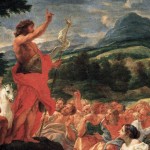One need not look beyond the advocates of the capitalist system to see its inconsistency with Christianity. For example, F. A. Hayek’s The Fatal Conceit: The Errors of Socialism, and Ludwig von Mises’ The Anti-capitalistic Mentality do a fine job of demonstrating the position that the values of solidarity, simplicity, modesty, restraint, fair prices and just wages, mutual aid, and moderation are destructive when it comes to supporting a capitalist way of life. Instead, their level of support for competition, individualism, self-interest, materialism, relativism, autonomy of the market, etc., along with their poorly masked embrace of social Darwinism which converts into a passive economic genocide of the poor, contradicts the Christian faith, in general, and Laudato si’ (79 and 210), in particular.
One can stumble upon other treatments on the inconsistency between capitalist values and those of Christianity. Catholic values are irreconcilable with- and their disappearance is connected to-the values sustaining and sustained by capitalism, according to the non-Catholic authors Max Weber and Peter Singer. It’s awfully consistent, then, for Francis, along with his predecessors, to suggest moving beyond the prevailing economic order – or, to be precise, capitalism.
This movement beyond the capitalist system is suggested time and time again in Laudato, as Francis insists that we develop new models of production, distribution, and consumption, along with re-examining our understanding of progress and advancement, and embracing new lifestyles. Indeed, he affirms a more ascetic way of living, an agrarian life style, a culture of solidarity and participation, respect for the earth, and putting people before profit – in fact, the only mention of capital is a negative one.
We do see other challenges posed by capitalism, especially here in the United States and in countries/markets directly connected to us. Concerning a lack of response to environmental destruction, Francis sees that “It is remarkable how weak international political responses have been. The failure of global summits on the environment make it plain that our politics are subject to technology and finance. There are too many special interests, and economic interests easily end up trumping the common good and manipulating information so that their own plans will not be affected” (54). The wealthy and the political powers are too interwoven – mutual service to respective interests is evident. A failure of democracy is connected to a massive accumulation of and desire for wealth, resulting in taking away the voice of the poor and the earth. This should not be surprising in our experience, as Joseph E. Stiglitz makes a similar argument in The Price of Inequality: How Today’s Divided Society Endangers our Future (2012).
Is socialism the answer? The lack of nuance in Cardinal Dolan’s WSJ piece would lead us to believe that socialism is not the answer. Robert Sirico, Samuel Gregg, Michael Novak, and Jay Richards would rather perform an intellectual circus to defend some form of capitalism before positing that socialism has a place within the Church’s teaching. But, interestingly enough, the compatibility of a socialism with the teaching of the church is not far fetched.












